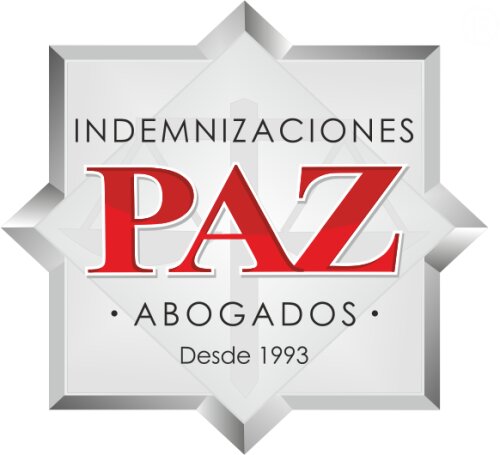Best Sanctions & Export Controls Lawyers in Pasto
Share your needs with us, get contacted by law firms.
Free. Takes 2 min.
List of the best lawyers in Pasto, Colombia
About Sanctions & Export Controls Law in Pasto, Colombia
Sanctions and export controls are legal measures that regulate the movement of goods, technologies, and services across national borders. In Pasto, Colombia, these laws play a significant role in ensuring that trade adheres to both national security and international agreements. The Colombian government, in alignment with international regulations and United Nations directives, enforces sanctions against specific countries, individuals, or groups and restricts the export or transfer of certain items. This legal framework is particularly relevant for businesses involved in international trade, logistics, technology, and financial services based in Pasto, a key commercial hub in southern Colombia.
Why You May Need a Lawyer
There are many situations in which legal guidance is crucial for individuals and businesses dealing with sanctions and export controls in Pasto:
- You are exporting or importing goods that may be restricted or controlled
- You have received notices of investigation or fines from Colombian authorities for alleged violations
- Your business trades with countries or parties that are subject to Colombian or international sanctions
- You want to ensure your contracts and operations are compliant with current export controls
- You need clarity on complex legal regulations before expanding to international markets
- Your financial transactions have been blocked or questioned by authorities
- You are facing challenges due to changes in U.S., EU, or other foreign sanctions that impact Colombian businesses
A knowledgeable lawyer can interpret the laws, protect your interests, and help you avoid costly legal penalties.
Local Laws Overview
Sanctions and export controls in Pasto are governed by laws enforced both at the national and international levels. Key aspects include:
- The Ministry of Commerce, Industry, and Tourism oversees export licenses and restrictions
- The Superintendence of Companies supervises compliance with anti-money laundering and embargo regulations, including international sanctions enforcement
- Colombian law prohibits dealings with parties named on national and United Nations sanctions lists
- Some goods (such as dual-use technologies, chemicals, and military items) require special permits for export
- There are strict penalties, including fines and criminal charges, for violations of export controls or sanctions laws
- Financial institutions enforce controls on transactions to ensure compliance with both national and international sanctions
Staying informed and compliant is essential, as laws and regulations are updated regularly to address evolving international obligations.
Frequently Asked Questions
What are sanctions in Colombia?
Sanctions in Colombia are legal measures that restrict or prohibit activities with certain countries, companies, or individuals due to security, foreign policy, or international obligations.
What is an export control?
Export controls are laws regulating the transfer of certain goods, technologies, or information to foreign countries or entities to protect national security or fulfill international agreements.
Which Colombian authorities regulate export controls in Pasto?
The Ministry of Commerce, Industry, and Tourism, along with the Colombian Customs and Tax Authority (DIAN), are the main regulators. They work in coordination with agencies responsible for international agreements and security.
Can I export any product from Pasto to other countries?
No, some products require special permits or are prohibited, especially those considered dual-use (civilian and military application), sensitive technologies, or controlled substances.
How do I know if my business partner is on a sanctions list?
You should consult official Colombian sanctions lists and United Nations designations. Many law firms and compliance professionals have tools to help with screening for sanctioned parties.
Are there penalties for violating export controls or sanctions?
Yes, violations can result in fines, loss of export privileges, criminal charges, and significant business disruptions.
Do international sanctions apply in Colombia?
Colombia complies with United Nations sanctions and often aligns with international sanctions imposed by bodies such as the United States or European Union, especially when international security is at stake.
I have received a legal notice regarding an export violation. What should I do?
Contact a specialized sanctions and export controls lawyer immediately to understand your situation, preserve your rights, and respond effectively to authorities.
What steps can I take to ensure compliance?
Implement internal compliance policies, train staff, regularly review transactions for red flags, and seek legal advice for complex or international deals.
How can a lawyer help with sanctions and export controls issues?
A lawyer can assess your risks, draft compliance procedures, represent you during audits or investigations, handle licensing applications, and defend your interests in legal proceedings.
Additional Resources
Here are some important resources in Pasto and Colombia for sanctions and export controls assistance:
- Ministry of Commerce, Industry, and Tourism - Export controls and permits
- DIAN (Dirección de Impuestos y Aduanas Nacionales) - Customs and trade compliance
- Superintendence of Companies - Compliance guidance and sanctions enforcement
- Colombian Association of International Trade Professionals
- Local chambers of commerce in Pasto for business support
- Legal aid clinics and law firms with expertise in international trade law
Next Steps
If you believe you are affected by sanctions or export controls issues in Pasto, Colombia, take these steps:
- Gather all relevant documents, contracts, and communications
- Identify the specific concerns or violations alleged
- Contact a lawyer with proven experience in sanctions and export controls
- Address compliance proactively if you are planning international trade or facing legal risks
- Stay updated on relevant legal changes and seek training or legal audits as needed
Taking quick and professional legal advice can help you navigate complex regulations, avoid penalties, and ensure smooth international business operations.
Lawzana helps you find the best lawyers and law firms in Pasto through a curated and pre-screened list of qualified legal professionals. Our platform offers rankings and detailed profiles of attorneys and law firms, allowing you to compare based on practice areas, including Sanctions & Export Controls, experience, and client feedback.
Each profile includes a description of the firm's areas of practice, client reviews, team members and partners, year of establishment, spoken languages, office locations, contact information, social media presence, and any published articles or resources. Most firms on our platform speak English and are experienced in both local and international legal matters.
Get a quote from top-rated law firms in Pasto, Colombia — quickly, securely, and without unnecessary hassle.
Disclaimer:
The information provided on this page is for general informational purposes only and does not constitute legal advice. While we strive to ensure the accuracy and relevance of the content, legal information may change over time, and interpretations of the law can vary. You should always consult with a qualified legal professional for advice specific to your situation.
We disclaim all liability for actions taken or not taken based on the content of this page. If you believe any information is incorrect or outdated, please contact us, and we will review and update it where appropriate.









